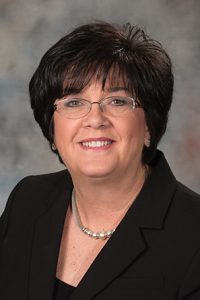Bill would repeal educator obscenity exemption
Members of the Judiciary Committee heard testimony Feb. 26 on a bill that would repeal a legal protection given to certain educators.

LB282, sponsored by Thurston Sen. Joni Albrecht, would remove an exemption from prosecution for school or library employees who provide obscenity to minors.
Albrecht said the bill would close a loophole in Nebraska law that allows an adult to provide obscenity to a child.
“In Nebraska elementary [and] high schools and libraries it currently is lawful to provide criminal obscenity to any age of school children,” she said. “It makes no sense that schools and libraries — of all places — should be given a path to expose children to material the law already would recognize as criminally obscene.”
Violation of the state’s obscenity law is a Class I misdemeanor, punishable by up to one year in prison, a $1,000 fine or both.
Matt Heffron, representing the Thomas Moore Society, spoke in support of LB282. He said the exemption for educators in the state’s obscenity statute was intended only for postsecondary instructors and art classes.
“[The bill] doesn’t do anything as far as teachers are concerned, they would just be held to the same standard as everyone else in the state,” Heffron said. “This is only to sort out the rogues who might want to present obscenity in schools.”
Also speaking in support of the bill was Teresa Davidson, a pediatric nurse practitioner and anti-human trafficking advocate. She said children’s minds are not developed enough to process sexually explicit images.
“Being exposed to sexually explicit material places children at risk from all kinds of predators, which is why it’s critical that a [legal] loophole that allows obscene material to be provided to children be closed,” Davidson said.
Opposing the bill was Hunter Traynor, speaking on behalf of the Nebraska Library Association. The bill runs counter to the Nebraska ideal of local control, he said, and would curtail the discretion librarians need to do their jobs.
“Library boards and school boards are better forums for concerned parents than our courts of law,” Traynor said. “Local control allows librarians to meet the needs of their communities and respond swiftly to any [situation].”
The committee took no immediate action on the bill.

